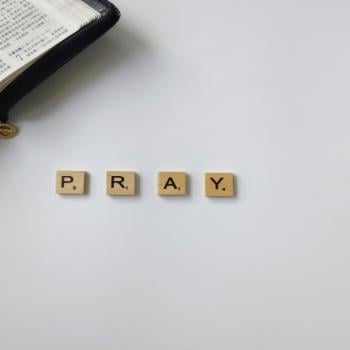In discussing this matter with the brother from my surau, I challenged him to "put Islam to the test." I told him that maybe he had to undergo the same process that we converts undergo when we convert, namely, the process of questioning basic beliefs and challenging ourselves to find truth. For people born into Islam, this means going beyond basic levels and striving to go deeper than they ever have before to understand Islam.
This, from what I observe, is how many Muslims have rediscovered Islam. They have more or less willed it. They have traveled, they have studied, they have sought out knowledgeable teachers, they became more involved in their communities -- whatever it takes. They have gone past the understanding of religion as it was passed down to them from their parents and found Islam for themselves. For many it happens when confronted with different life circumstances, for example, perhaps when they go abroad to study and are suddenly no longer in an Islamic environment, or when they or a family member becomes inflicted with an illness or they experience a tragedy, or for some perhaps when a particularly stubborn Christian missionary puts them to the test and they find that they do not have the level of faith they thought they did. Whatever the scenario, experiences such as these force us to draw definitive conclusions about why we live this life of Islam.
As Muslims, we know that submission means, "we hear and we obey" (24:51), as we are (ideally) slaves of our Creator. For many, myself included, accepting Islam includes a greater yearning for truth and knowledge of God as well. This can only occur, however, when we push on with that search for truth, even once we have accepted Islam.
If we read the biographies of some of Islam's great personalities, we come across lives such as those of Imam Abu Hamid Al-Ghazali who, while already having achieved great worldly status as a scholar, yearned for a more direct experience and deeper level of truth. In order to do so, however, he underwent a major questioning of his beliefs and an abandoning of all his worldly status before he could arrive at it. The results of his life journey speak for themselves; Imam Nawawi, speaking about Imam Al-Ghazali's Ihya' Ulum al-Din (Revival of the Religious Sciences), wrote "were all the books of Islam to be lost save the Revival alone, it would suffice for them." He also earned the title of "Hujjat ul-Islam," or "the proof of Islam" for his great works and teachings.
Imam Al-Ghazali looked deep within himself to arrive at the conclusion that his worldly successes -- even as an Islamic scholar -- would not be enough to save him on the Day of Judgment. He feared for his fate, and thus had to address the inkling in his heart that told him to go further. Uncovering our self can be a difficult experience. It often entails dissecting the darkest layers within us. It requires self-effacement, and the courage to be vulnerable and admit that we may not have the answers we thought we did in life. It is, without a doubt, a test of the highest and greatest magnitude. Allah draws our attention throughout the Qur'an on the importance of reflection,
Those who remember Allah standing and sitting and lying on their sides and reflect on the creation of the heavens and the earth: Our Lord! Thou hast not created this in vain! Glory be to Thee; save us then from the chastisement of the fire (3:91).
We know that reflection is not an easy thing, particularly when it is on ourselves. In another ayat [verse],
Do they not reflect in their own minds? Not but for just ends and for a term appointed, did Allah create the heavens and the earth, and all between them: yet there are truly many among men who deny the meeting with their Lord (at the Resurrection) (30:08)!
When I look at myself today as opposed to three years ago, I see two different people. No, rather, I see two people with many of the same attributes, but in completely different places. A very well known contemporary sheikh talks about religion as a shelter. He says if your shelter is strong, if it protects you from all the shaytans (devils) in the world, it has no holes in the walls, and it keeps out the rain, than it is a good shelter. However, if your shelter is porous, if it doesn't protect you from the shaytans, then you need a new shelter.
The "me" of three years ago was in a badly damaged shelter that was not protecting me from the elements. "Me" today, however, with Islam, inshaAllah (by the will of God), is in a much better shelter, one that protects me as long as I stay in it and don't leave it. Conversion within us must do this. It must literally move us from one place in life to another. Therefore, every piece of "us" must change, must undergo examination and renewal to arrive at truth, not just back into it accidentally or unwillingly.




